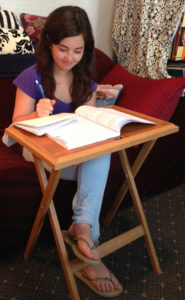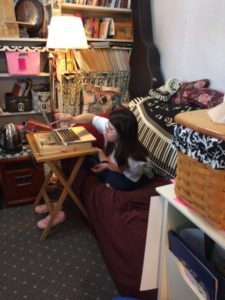Tutoring Can Benefit Everyone!
 “Tutoring” — in most instances — has an extremely negative connotation. While most people will get ‘help’ by purchasing eye glasses if they cannot see, or a hearing aid if they cannot hear, or obtaining assistance from a mechanic if their car won’t work properly, or an electrician if their lights don’t work, these same people often do not know how to go about procuring services for a child – or even themselves – when it comes to needing help with:
“Tutoring” — in most instances — has an extremely negative connotation. While most people will get ‘help’ by purchasing eye glasses if they cannot see, or a hearing aid if they cannot hear, or obtaining assistance from a mechanic if their car won’t work properly, or an electrician if their lights don’t work, these same people often do not know how to go about procuring services for a child – or even themselves – when it comes to needing help with:
- making sense of the written word ~ at any level or age!
- putting thoughts on paper;
- understanding what the teacher is ‘talking about’ in literature/reading/ writing.
All children who don’t seem to be understanding what is expected of them in the classroom — using the written word, in reading or writing — can benefit from tutoring. How can you tell if your child requires assistance outside of school?
- younger children may need help if their peers seem to ‘catch on’ to reading and writing a bit more quickly than your child;
- older children who have great thoughts and ideas but are unable to put down on paper what is going on in their minds can benefit from tutoring;
- children who have somehow ‘missed’ what the teacher has taught, and may need help ‘filling in the holes’ definitely should seek assistance.
Tutoring may be
- short-term (a high school student needs to study for the SAT/ACT test or write a paper ~ when it’s done, tutoring is over!)
- on-going (weekly sessions to ‘keep up’ with a specific course in school)
- needs-based (Robin can be ‘on call’ for when a student requires test-preparation or help with a specific project)
At the elementary level, a student may need help with
- learning the alphabet;
- internalizing the letter-sound connection;
- developing vocabulary through skills other than rote memorization.
 At the middle or high school level, a student may need assistance understanding various types and styles of literature: poetry, short stories, novels, or with understanding the processes of writing a paragraph, essay, theme or paper;
At the middle or high school level, a student may need assistance understanding various types and styles of literature: poetry, short stories, novels, or with understanding the processes of writing a paragraph, essay, theme or paper;
- how to put thoughts to paper in an understandable manner while using correct and proper English;
- how to navigate text: using and identifying key poetic devices (alliteration, symbolism, metaphor, personification, etc.)
At higher levels, a student may need help with
- formatting and using MLA and APA styles properly;
- editing;
- raising points on an SAT/ACT or other standardized test;
- writing a job application letter;
- resume building.
Study Skills at any age or level. The Stone House Studio can help you!
Call the Stone House Studio today at 262.377.5959
